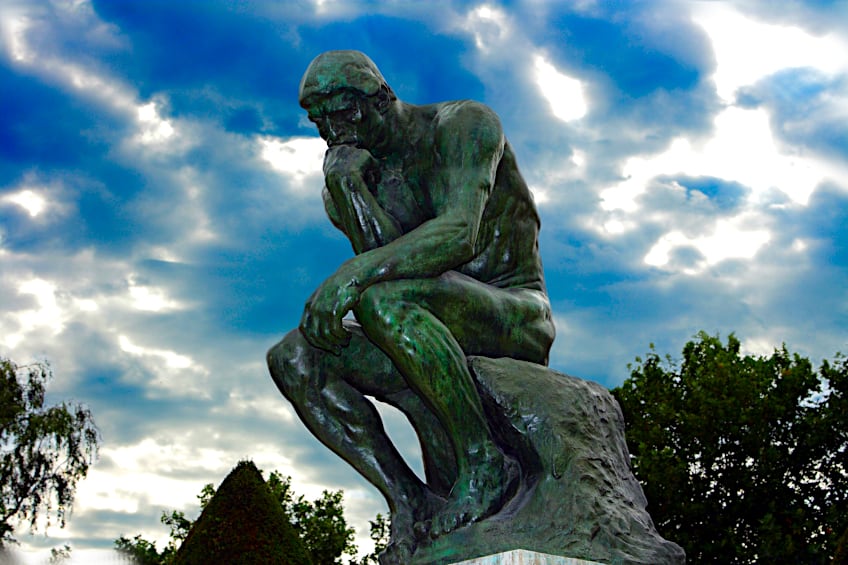Famous Philosophers – 20 Top Thinkers You Should Know
What’s a philosopher? Who are the most famous philosophers? These questions will be answered below as we examine twenty different philosophers’ names and discuss each of them in turn. These famous philosophers have been discussed in some detail, while also talking about some of the ideas that they have produced throughout their lives. If you want an overview of some of the most famous philosophers, then look no further, and let’s get started.
Contents
- 1 A Look at Famous Philosophers
- 1.1 Plato (428/427 – 348/347 BCE) from Athens
- 1.2 Aristotle (384 – 322 BCE) from Stagira
- 1.3 Marcus Aurelius (121 – 180 CE) from Rome
- 1.4 Thomas Aquinas (1225 – 1274) from Aquino
- 1.5 René Descartes (1596 – 1650) from La Haye en Touraine
- 1.6 John Locke (1632 – 1704) from Wrington
- 1.7 David Hume (1711 – 1776) from Edinburgh
- 1.8 Jean-Jacques Rousseau (1712 – 1778) from Geneva
- 1.9 Immanuel Kant (1724 – 1804) from Königsberg
- 1.10 Georg Wilhelm Friedrich Hegel (1770 – 1831) from Stuttgart
- 1.11 Karl Marx (1818 – 1883) from Trier
- 1.12 Friedrich Nietzsche (1844 – 1900) from Röcken
- 1.13 Bertrand Russell (1872 – 1970) from Trelleck
- 1.14 Ludwig Wittgenstein (1889 – 1951) from Vienna
- 1.15 Jean-Paul Sartre (1905 – 1980) from Paris
- 1.16 Simone de Beauvoir (1908 – 1986) from Paris
- 1.17 Noam Chomsky (1928 – Present) from Philadelphia
- 1.18 Jacques Derrida (1930 – 2004) from El Biar
- 1.19 Slavoj Žižek (1949 – Present) from Ljubljana
- 1.20 Judith Butler (1956 – Present) from Cleveland
- 2 Frequently Asked Questions
A Look at Famous Philosophers
Before we delve into this list of famous philosophers, we should probably first ask: “What’s a philosopher?”. In the ancient Greek tradition, from which the term “philosopher” arose, the word meant a lover of wisdom, and this is something that could still be used to characterize philosophers to this day. Philosophers are concerned with formulating and understanding human knowledge about profound topics and questions.
A philosopher will use a wide range of methods, including research, discussion, study, teaching, and writing to gain insight into topics such as metaphysics, ethics, logic, and so on.
This list will explore twenty philosophers’ names and their contributions. However, it should be worth noting that as there are only twenty figures on this list, there are many philosophers whose names did not manage to make it into this list. So, this should be seen as an introductory list of philosophers, but there are many more out there that are worth exploring if you have the time.
Plato (428/427 – 348/347 BCE) from Athens
| Dates | 428/427 – 348/347 BCE |
| Place of Birth | Athens, Greece |
| Philosophical School | Platonism |
| Famous For | The Republic (375 BCE) |
Plato is not only known for his own work. He may be one of the most important philosophers of all time, but that is also because of his immensely important teacher. One of the major contributions of Plato is that he wrote extensively on the way in which Socrates taught. Socrates is often considered to be the “Father of Philosophy”, but he never actually wrote anything himself, and so it was his students who cataloged his thoughts and ideas.
Scholars have speculated that in some of the later Platonic dialogues, the character of Socrates may have been used as a means of discussing some of Plato’s ideas rather than those of Socrates himself.
With regard to Plato, he is considered to be one of three major figures of ancient Greek philosophy. The other two were his teacher, Socrates, and his student, Aristotle. So, the influence of Plato on all subsequent philosophy cannot be overstated. His influence can even be felt in modern philosophers, and when someone learns philosophy at a university level, many of the courses start with Plato. In addition to this, Plato founded the Academy, which was a philosophical school that would remain one of the most important aspects of the history of philosophy, and even the name of the school would go on to influence education for millennia thereafter.
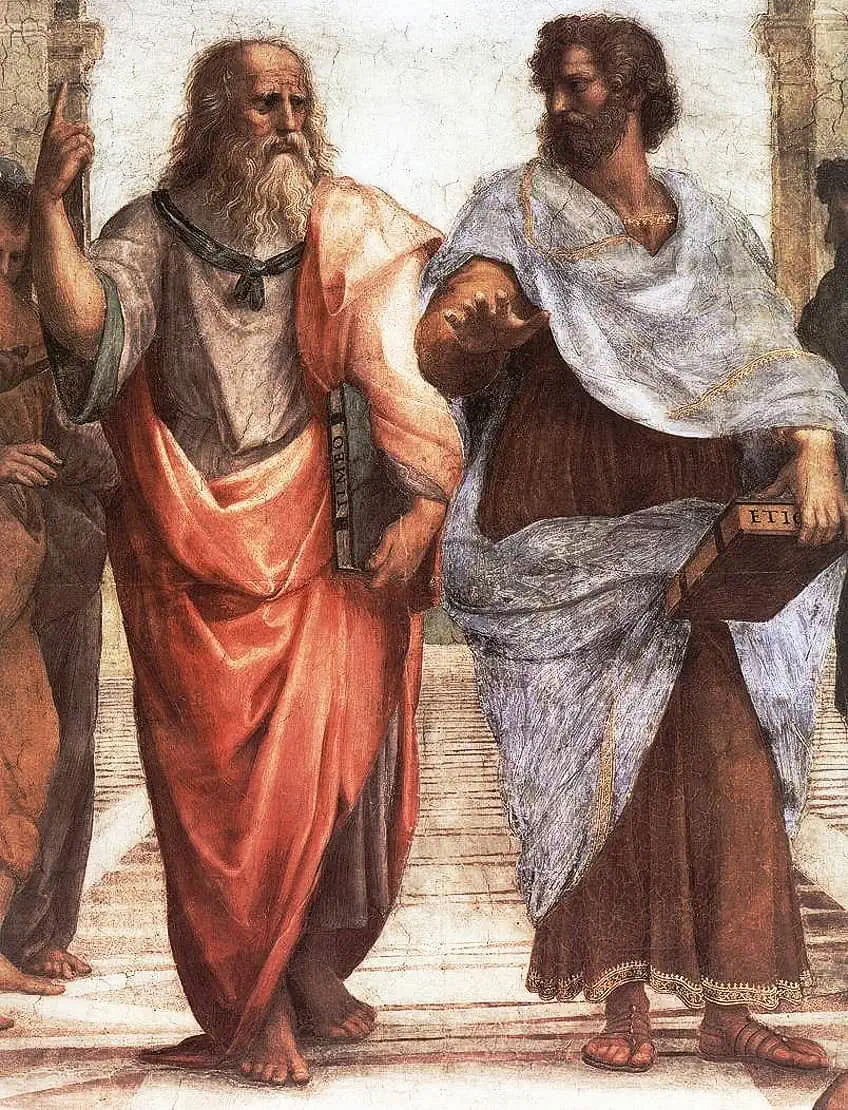
Aristotle (384 – 322 BCE) from Stagira
| Dates | 384 – 322 BCE |
| Place of Birth | Stagira, Greece |
| Philosophical School | Aristotelianism |
| Famous For | Nichomachean Ethics (4th century BCE), Poetics (335 BCE), and Metaphysics (4th century BCE) |
Aristotle, alongside his teacher, Plato, is considered to be one of the most famous philosophers in the history of philosophy. His work would encompass far more than only philosophy and he became such an important figure that even those who saw him as a heretic, such as the early Christian philosophers, called him “The Philosopher”. The definite article in that title solidifies his place as one of the most important philosophers of all time. Other than philosophy, he also engaged in logic, politics, biology, physics, rhetoric, poetics, and many other fields.
While Aristotle may have been one of the most important figures of Western philosophy in general, he also had an important influence on another immensely well-known historical figure, Alexander the Great.
This Macedonian conqueror, who is considered to be one of the primary reasons that the Greek empire became such a powerful and influential force in the world, was tutored by Aristotle. So, the intelligence and strategy that Alexander the Great brought to his conquests may have come, in part, from the teachings of this famous figure.
Marcus Aurelius (121 – 180 CE) from Rome
| Dates | 121 – 180 CE |
| Place of Birth | Rome, Italy |
| Philosophical School | Stoicism |
| Famous For | The Meditations (161 – 180 CE) |
Marcus Aurelius was not actually known as a philosopher in his own time, but he has since become one of the most famous philosophers of ancient Rome. As a man, Marcus Aurelius was a Roman emperor who became known as one of the Five Good Emperors. In addition, he ruled over the final period of relative peace in the Roman Empire which was known as Pax Romana. So, he is an important figure in the history of the Roman Empire and one of the best-known emperors of that massively consequential civilization, but he had an interest in philosophy on a more personal level.
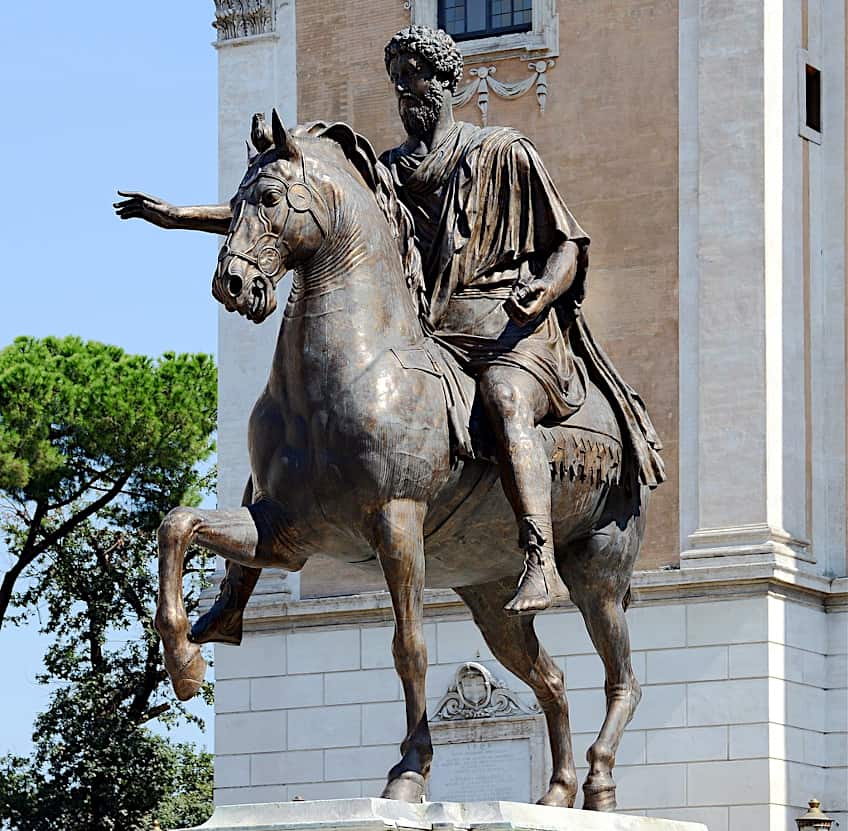
Marcus Aurelius wrote a text known as The Meditations, which was not meant for publication but was instead a personal reflective work about ethics, nature, and duty. It would become one of the foundational texts in Stoic philosophy and tends to be recommended, to this day, as a principle text in certain therapeutic and self-help avenues.
Stoic philosophy, as a whole, had a major influence on cognitive-behavioral therapy, which is a common form of psychological therapy, and as Meditations had a major influence on Stoicism, his words can be found, in a new form, in contemporary therapy.
Thomas Aquinas (1225 – 1274) from Aquino
| Dates | 1225 – 1274 |
| Place of Birth | Aquino, Italy |
| Philosophical School | Scholasticism |
| Famous For | Summa Theologica (1485) |
Saint Thomas Aquinas was one of the most important philosophers in the history of Christian theology and, more specifically, in Scholasticism. He would have a major influence on subsequent Christian philosophers into the present day, but unlike many other theologians, his work would go on to influence more secular forms of philosophy.
Aquinas’ work, which combined elements of Aristotelian philosophy with Christian ideas, would go on to have a major influence on the development of virtue ethics and other more secular strands of philosophy into the future.
While he was ultimately declared a saint by the Catholic church, he does not much conform to the usual ways in which we think of a saint. We usually see saints as immensely humble or martyred figures who may have lived a life of poverty or service in the name of their faith, but this was not the case with Thomas Aquinas. He was instead canonized as a saint a few decades after his death in recognition of his incredibly powerful contributions to Christian scholarship.
René Descartes (1596 – 1650) from La Haye en Touraine
| Dates | 1596 – 1650 |
| Place of Birth | La Haye en Touraine, France |
| Philosophical School | Cartesian |
| Famous For | “I think, therefore I am.” |
When it comes to famous philosophers, a list would be incomplete without an appearance by René Descartes. This French philosopher is considered to be one of the most important, especially because of his Meditations on First Philosophy, which explores a number of ideas and ultimately attempts to prove the existence of god through logic and reason.
Each of the meditations within this text is short and does not require any former reading in philosophy.
For this reason, it is often considered to be an integral introductory text into philosophy in general.
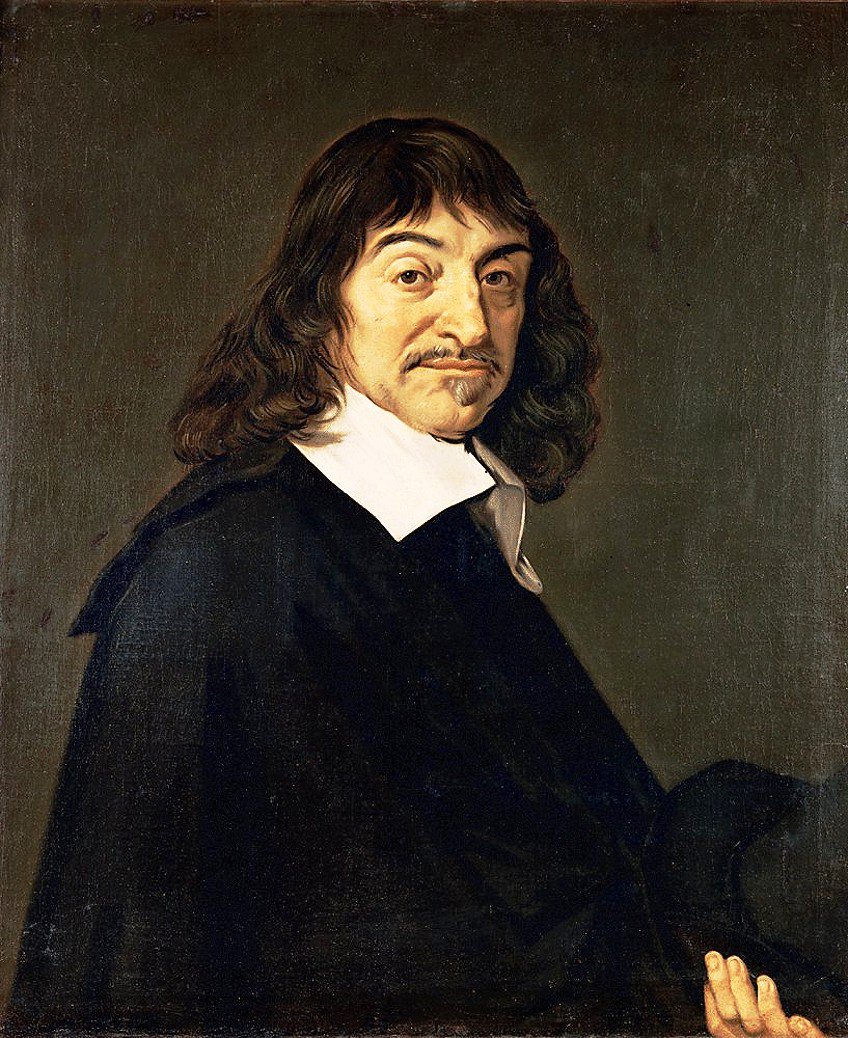
However, it was within that important text that he elaborated on an idea that would become one of, if not the most, famous philosophical statement of all time: “I think, therefore I am”. Strictly speaking, the phrase appears in an earlier text, but a modified form of it appears in the Meditations on First Philosophy and it was through that text that it would go on to become one of the most widely recognized ideas relating to philosophical proof of mind.
John Locke (1632 – 1704) from Wrington
| Dates | 1632 – 1704 |
| Place of Birth | Wrington, United Kingdom |
| Philosophical School | Empiricism |
| Famous For | Texts on liberalism |
John Locke was considered to be one of the most important figures in the history of liberalism. It should, firstly, be understood that this is not the contemporary usage of the term “liberal” as an oppositional ideology to “conservatism” and is instead related to the initial meaning of liberalism. This was the idea that would go on to influence contemporary Western society into the ideological perspective that now exists.
The idea behind liberalism is in opposition to the monarchs, as it was an attempt to instead argue for human rights, democracy, equality, and private property while also reducing the overall power of the state so that it no longer had the power to decide, on a whim, the lives of the people within a country.
This political philosophy would become the major contribution for which John Locke became known, but he was also an important philosopher in the development of empiricism.
David Hume (1711 – 1776) from Edinburgh
| Dates | 1711 – 1776 |
| Place of Birth | Edinburgh, Scotland |
| Philosophical School | Empiricism and Skepticism |
| Famous For | A Treatise of Human Nature (1739 – 1740) |
David Hume is recognized as one of the most important figures in the development of skepticism and empiricism. Empiricism is a focus on what can be experienced and directly studied, and as such, it tends to distance itself from metaphysics. It means that we can only truly understand that which is accessible to our senses.
Skepticism doubts that certain knowledge is at all attainable to us, and therefore it challenges many of the presumptions that other philosophy has often taken for granted.
Hume would go on to become one of the most famous philosophers in these fields as he discussed ideas such as the impossibility of us being able to prove the existence of god, that morality should be based on sympathetic ideas and emotion rather than on rationalism, and that humanity can be studied in an empirical and critical sense. He would go on to influence many subsequent philosophers who operated in similar fields, and his influence on modern philosophers is immense.
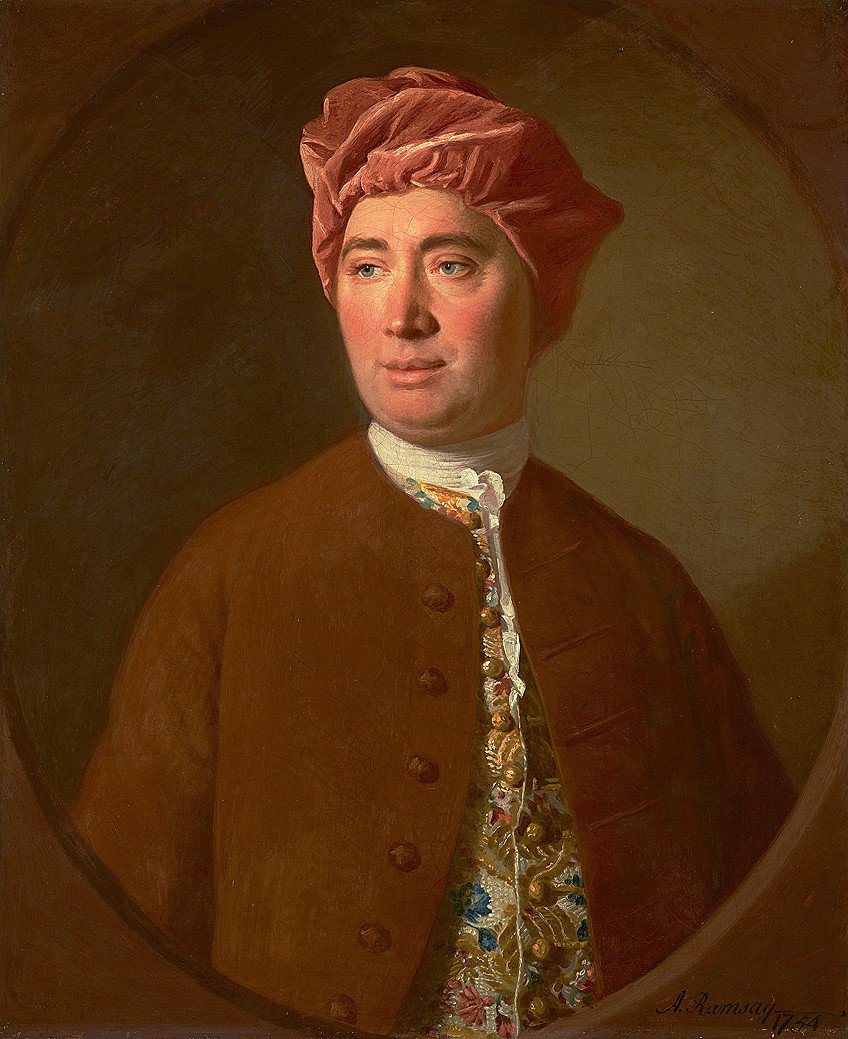
Jean-Jacques Rousseau (1712 – 1778) from Geneva
| Dates | 1712 – 1778 |
| Place of Birth | Geneva, Switzerland |
| Philosophical School | Political |
| Famous For | A Discourse Upon the Origin and Foundation of the Inequality Among Mankind (1755) |
Rousseau is one of the philosophers whose political theory would go on to influence a number of different movements around the world, such as the politicians who would go on to instigate the French Revolution.
Rousseau is considered to be one of the most important figures in Western philosophy and an important figure in modern political theory too. His works are still studied by those interested in politics.
However, Rousseau wrote far more than only philosophy, and he was also a novelist and the writer of some of the most prominent philosophical works of fiction. His work on the nature of human beings and the way in which we are naturally good when born and then corrupted by society has gone on to shape the ideologies and philosophies of many modern philosophers and politicians.
Immanuel Kant (1724 – 1804) from Königsberg
| Dates | 1724 – 1804 |
| Place of Birth | Königsberg, Prussia (now Kaliningrad, Russia) |
| Philosophical School | Enlightenment |
| Famous For | Critique of Pure Reason (1781) and Critique of Practical Reason (1788) |
Immanuel Kant is considered to be one of the most important philosophers in Western philosophy as he has been an influence on practically every major philosopher ever since the publication of his works. His major areas of exploration included his analyses in pure and practical reason, the latter of which led to the development of his highly influential ethical system known as deontology (which is more commonly understood as the rights-based approach to ethics).
The influence of Kant cannot be overstated, and while he is also known for never truly venturing outside of his hometown, he still managed to have a profound influence on Western philosophy.
Perhaps the biggest influence that is readily understood by most is that his work, and the work of those who built on what he began, led to the kinds of ideas that can be found in the United Nations Universal Declaration of Human Rights, which has been a common template for many constitutions around the world.
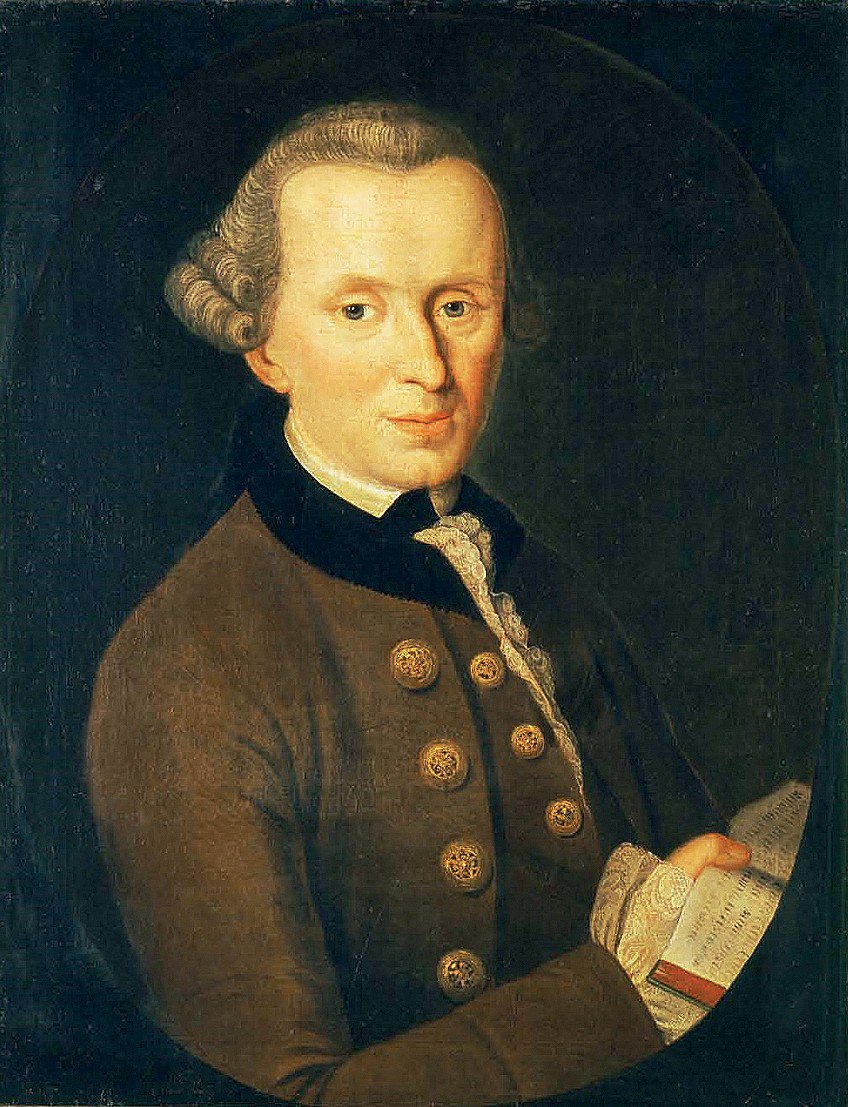
Georg Wilhelm Friedrich Hegel (1770 – 1831) from Stuttgart
| Dates | 1770 – 1831 |
| Place of Birth | Stuttgart, Germany |
| Philosophical School | Idealism |
| Famous For | Phenomenology of Spirit (1807) |
If you want a famous philosopher who is universally considered to be an immensely difficult person to read, then look no further than Georg Wilhelm Friedrich Hegel (even his name is unwieldy). However, this particular figure is considered to be one of the most important in the realm of German Idealism, and his work would go on to have considerable influence, especially in political viewpoints.
His concept of Hegelian dialectics would become one of the most important in terms of contemporary understanding of politics, and his work is still applicable today as a means of breaking down and understanding existing ideological structures that we may otherwise take for granted.
However, his work is frequently misunderstood, and some figures, such as Slavoj Žižek, have made entire careers out of interpreting Hegel’s work.
Karl Marx (1818 – 1883) from Trier
| Dates | 1818 – 1883 |
| Place of Birth | Trier, Germany |
| Philosophical School | Marxism |
| Famous For | The Communist Manifesto (1848) and Das Kapital (1867 – 1894) |
Karl Marx is, by far, one of the most consequential and famous philosophers to have ever lived. His political philosophy, which was best exemplified through the short philosophical text The Communist Manifesto and then elaborated in more economic detail in his immensely large three-volume Das Kapital (or Capital in English), promoted and discussed communist ideas that would go on to become known as Marxism.
Many of the texts that Karl Marx worked on, he did so alongside Frederich Engels, who is not as widely known today as his counterpart.
The reason for the incredible fame of this particular famous philosopher and economist is that his work would go on to have an influence on a variety of philosophers, such as Jean-Paul Sartre and Frantz Fanon, but it is best known for having an impact on significant 20th-century political figures, especially those in Russia, namely Vladimir Lenin, Leon Trotsky, and Joseph Stalin. These political figures would go on to implement their own versions of Marxist thought in their control of the USSR.
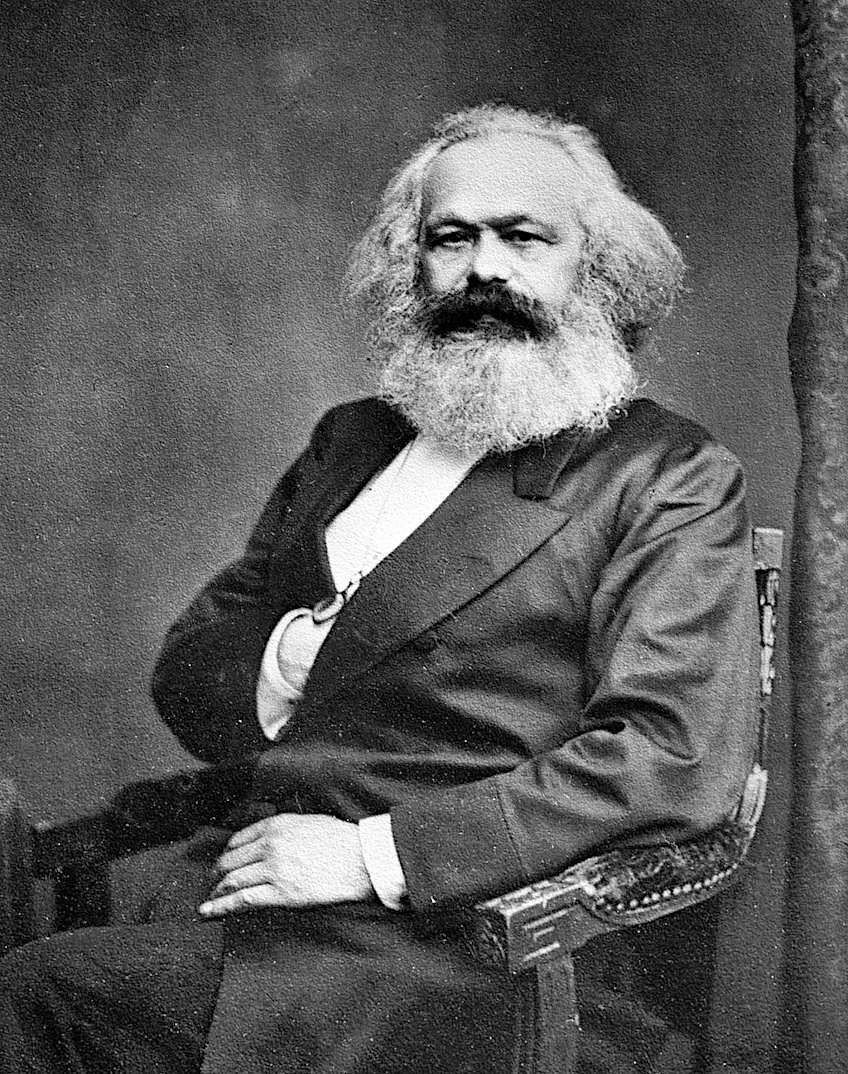
Friedrich Nietzsche (1844 – 1900) from Röcken
| Dates | 1844 – 1900 |
| Place of Birth | Röcken, Germany |
| Philosophical School | Nietzschean |
| Famous For | Thus Spake Zarathustra (1883 – 1885) and Beyond Good and Evil (1886) |
Friedrich Nietzsche is considered to be one of the most famous philosophers to have ever lived, but his work was also not easy to classify. His work was often instead a critique and attack on philosophical ideas that had been taken for granted.
Some of his most prominent work was in the realm of ethics and religion, in which he famously used the idea of “God is dead” as a means of discussing the way in which a secular society needs to reassess the way in which ethics is approached when there is no longer the idea of a god who represents a definitive right and wrong.
In addition to this, many of his texts challenged a variety of other establishments that have been taken for granted, such as rationality, humanism, and democracy. He is often misunderstood as a nihilist philosopher, but it is more accurate to state that he attempted to fight against nihilism and find ways to overcome it in the face of the destruction of those taken-for-granted values that have been mentioned. His work is often up for interpretation though, and his influence on artists as well as philosophers has been significant. He would go on to be an important figure in the establishment of philosophical traditions such as existentialism and postmodernism.
Bertrand Russell (1872 – 1970) from Trelleck
| Dates | 1872 – 1970 |
| Place of Birth | Trelleck, Wales |
| Philosophical School | Analytic |
| Famous For | Why I Am Not a Christian (1927) and A History of Western Philosophy (1946) |
Famous philosophers come and go, but few have the kind of overwhelming influence that Bertrand Russell managed to attain. One of the reasons for this is that, unlike many other philosophers, he was not solely a philosopher. Instead, he was a mathematician, logician, and public intellectual too. He attained a level of fame that is unusual for philosophers because, unlike most philosophers, he managed to break into the mainstream through his public intellectual persona.
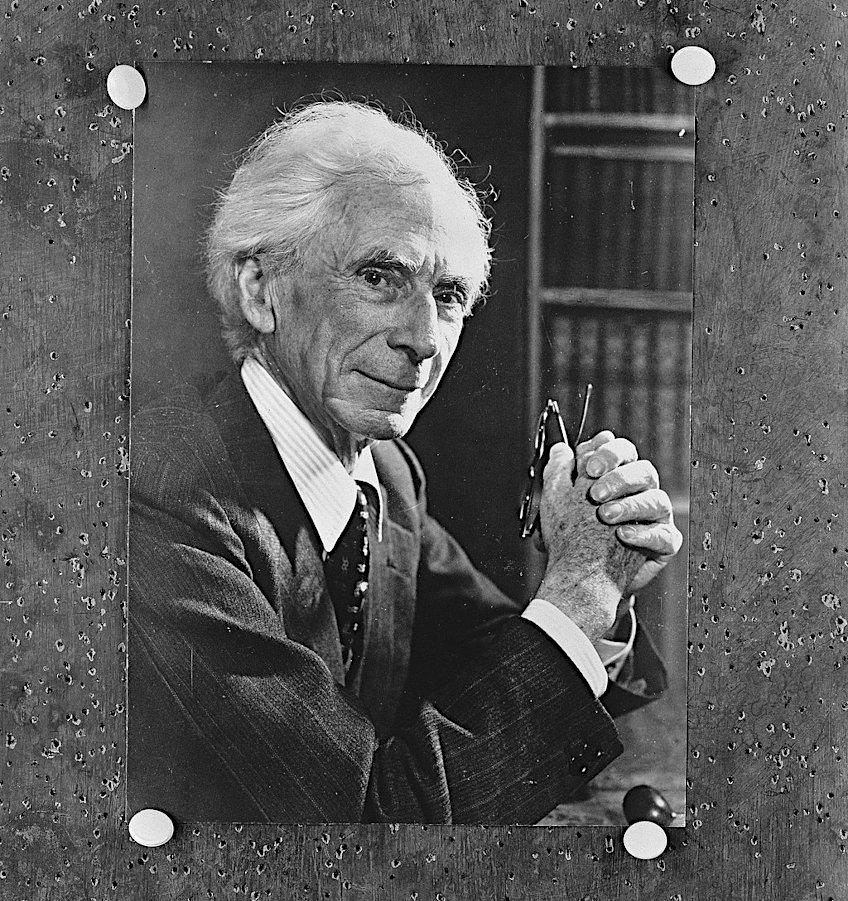
He would go on to become an important figure in the development of the analytic movement and was especially important in the development of early-20th-century logic, such as through logical examinations of definite and indefinite statements. This would also lead to his strong association with his protégé, Ludwig Wittgenstein.
Outside of philosophy, he was seen as an important advocate for democracy, human rights, pacifism, and international cooperation.
Ludwig Wittgenstein (1889 – 1951) from Vienna
| Dates | 1889 – 1951 |
| Place of Birth | Vienna, Austria |
| Philosophical School | Analytic |
| Famous For | Tractatus Logico-Philosophicus (1921) and Philosophical Investigations (1953) |
Few philosophers manage to influence philosophy in the way that Wittgenstein influenced it. His contributions have remained incredibly powerful in understanding the philosophy of language, but it is also worth noting that while both of his important texts are considered to be foundational in 20th-century philosophy, his response to them was quite arrogant.
Upon the publication of Tractatus Logico-Philosophicus, he proclaimed that he had solved philosophy and promptly left much of academia to do a number of other things with his life. However, he did eventually change his mind and return to philosophy.
He did not see the publication of his next major work, The Philosophical Investigations, but it changed significantly from his early work and is considered to be another immensely important text in the history of the philosophy of language. His views on the logical view of language and the way in which language can be understood in a variety of ways based on language games have gone on to influence much of subsequent philosophy.
Jean-Paul Sartre (1905 – 1980) from Paris
| Dates | 1905 – 1980 |
| Place of Birth | Paris, France |
| Philosophical School | Existentialism |
| Famous For | Being and Nothingness (1943) |
Jean-Paul Sartre is a figure who should be understood alongside Simone de Beauvoir, and so her entry is below. This pair of philosophers would go on to be some of the earliest founding members of existentialism, but they would branch into different philosophical avenues. He progressed more towards Marxism in his later years and would become an important political activist who argued for Marxist principles in the middle of the Cold War when those kinds of ideas were often attacked in the mainstream in Western countries.
His existential philosophy was oriented around the idea of understanding that one’s “existence precedes essence”, and that you exist as a physical being before you have a true inner life.
He advocated for living your life as you wish to live it, and existentialism has remained popular to this day because it can often be seen as a way of taking life by the horns. One of the ways in which he lived as he wished was in his long-standing relationship with Simone de Beauvoir. The two of them considered each other to be life partners, but they never married or had kids, and instead had a number of sexual and romantic relationships outside of their relationship with one another. Today, this may be less frowned upon, but they did this in the middle of the 20th century, and so they were very much ahead of their time.
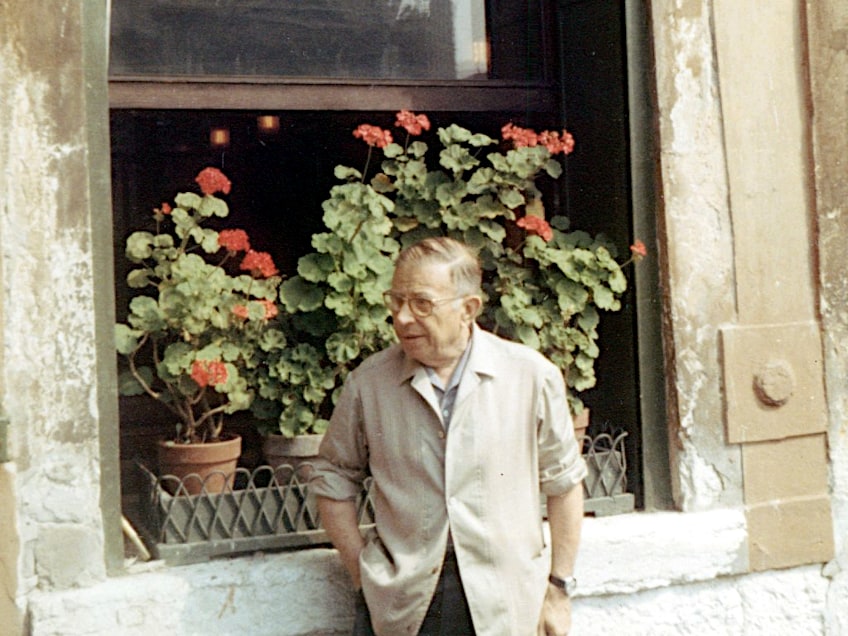
Simone de Beauvoir (1908 – 1986) from Paris
| Dates | 1908 – 1986 |
| Place of Birth | Paris, France |
| Philosophical School | Feminism and existentialism |
| Famous For | The Second Sex (1949) |
As was mentioned in the above entry, Simone de Beauvoir and Jean-Paul Sartre are often considered alongside one another. The pair of them would remain steadfast intellectual and life partners throughout their lives while never marrying one another. However, they were both buried beside one another. These two figures were important in the early development of existentialism, but she started to transition more toward feminism later in life.
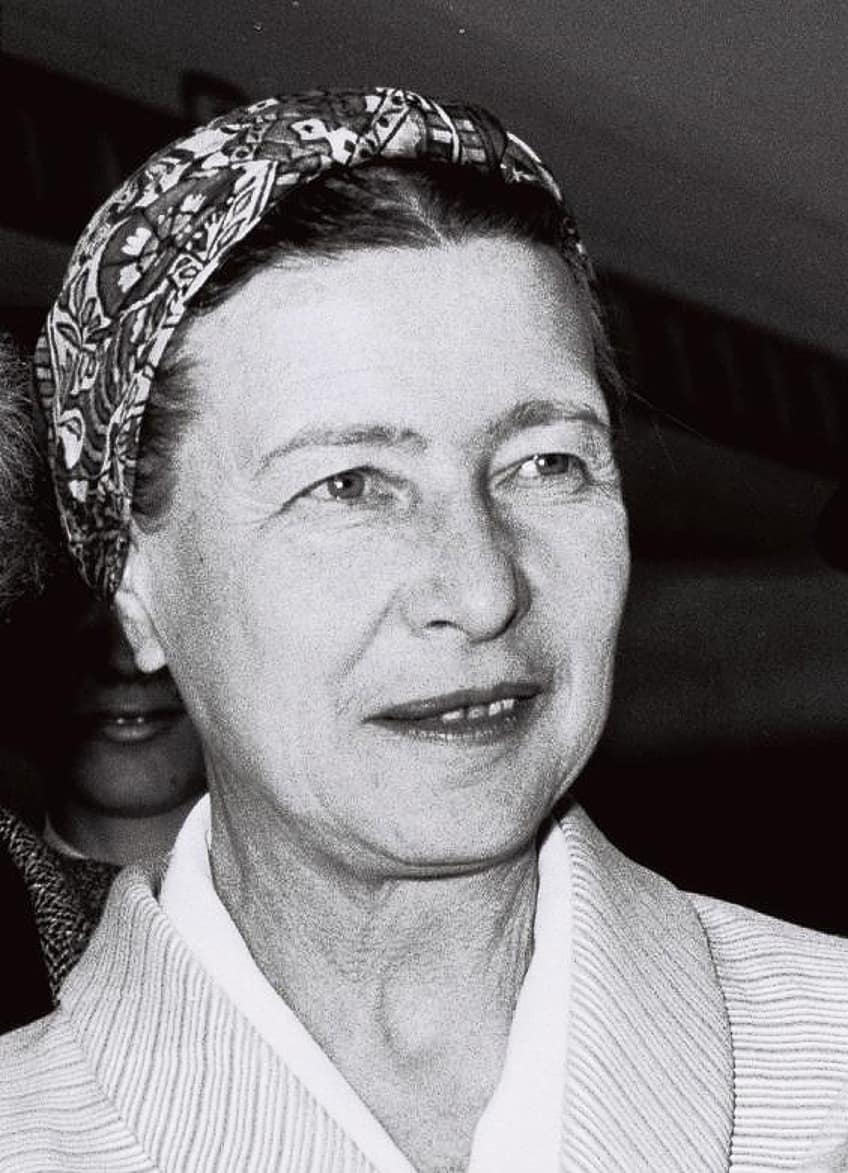
Thanks to this transition, she has become best known in the modern day for her seminal piece of feminist philosophy The Second Sex. Her work attempted to dismantle the way in which we see feminine individuals and to understand the way in which society has shaped the way that women have become.
She famously stated in this text that “one is not born, but becomes a woman”. This exemplified the way in which she saw femininity and womanhood as something that would later come to be known as a social construct.
Noam Chomsky (1928 – Present) from Philadelphia
| Dates | 1923 – Present |
| Place of Birth | Philadelphia, Pennsylvania, United States |
| Philosophical School | Linguistics, social criticism, and political |
| Famous For | The Logical Structure of Linguistic Theory (1975) |
Noam Chomsky is one of the most famous living philosophers, but he is another of those figures who is like Bertrand Russell as his work is about far more than only philosophy. In fact, his earliest work, and some of his most influential, is in the realm of linguistics. In fact, his contributions to linguistics are considered to be so significant that he is sometimes labeled the “father of modern linguistics”.
In addition to his work in linguistics, which argued for a universalized understanding of certain aspects of human language, he is also an important figure in the realm of history, social criticism, and political activism. He has become a figure most recognized along progressive political lines.
Jacques Derrida (1930 – 2004) from El Biar
| Dates | 1930 – 2004 |
| Place of Birth | El Biar, Algeria |
| Philosophical School | Deconstructionism |
| Famous For | Of Grammatology (1967) |
Jacques Derrida is one of those philosophers who is known for being difficult to read. His work is often highly complex and requires a preexisting understanding of a variety of other philosophers and their ideas, especially the work of Husserl.
Derrida’s ideas led to the development of deconstruction, which is a way of understanding and analyzing aspects of the world through a breakdown of binary thought.
Later in his life, he would become an important figure in animal studies with concepts such as the animal gaze and carno-phallogocentrism being of particular importance. His work, while complex, is considered to be some of the most important in the 20th century, and he is often seen as a founding figure in postmodernism in general.
Slavoj Žižek (1949 – Present) from Ljubljana
| Dates | 1949 – Present |
| Place of Birth | Ljubljana, Slovenia |
| Philosophical School | Idealism and Marxism |
| Famous For | The Sublime Object of Ideology (1989) |
Slavoj Žižek is a rather fascinating and famous philosopher who has a lengthy career in a variety of fields, such as cultural theory, psychoanalysis, politics, Marxism, and Hegelian dialectics. In addition to this, he has become known as something of a public character, and his works tend to be written in a more provocative style that often incorporates humor and vulgarity.
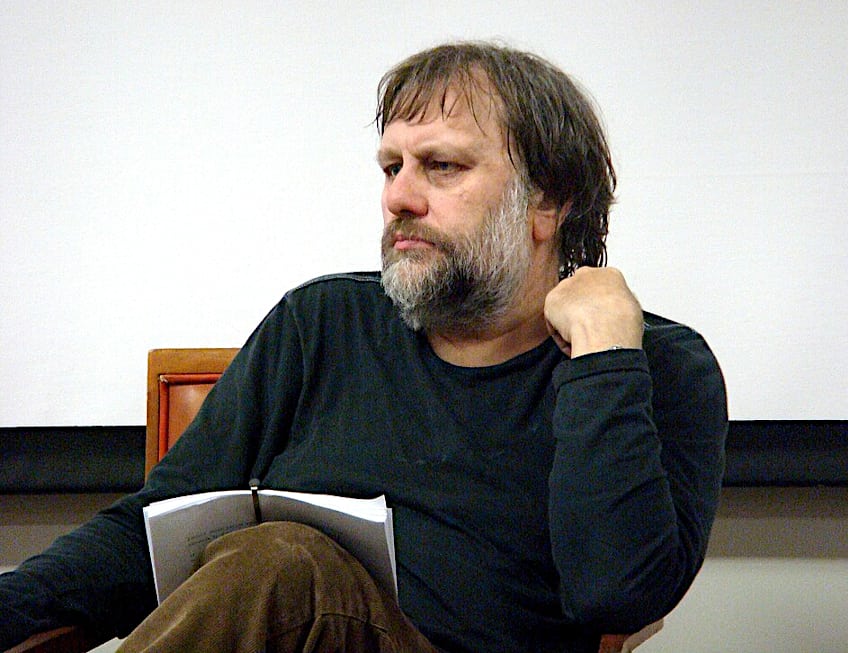
In the internet age, Žižek has also become prominent because of the many images of him in which he appears unhinged or miserable. Perhaps the most famous of all of these are the multiple images of his bedroom, in which a framed portrait of Joseph Stalin watches over him while he sleeps. He has probably become the most famous public intellectual of the modern era.
Judith Butler (1956 – Present) from Cleveland
| Dates | 1956 – Present |
| Place of Birth | Cleveland, Ohio, United States |
| Philosophical School | Performativity, feminism, and queer theory |
| Famous For | Gender Trouble (1990) |
Judith Butler is one of the most important modern philosophers and one of the few on this list that is still alive. Butler has become an incredibly famous philosopher over the last few years as her work has managed to penetrate into the mainstream, which is rather fascinating considering the difficulty of some of the texts that she has written, but her views on performativity have become some of Butler’s most important works on contemporary feminist theory.
Butler’s work has seen considerable influence in queer spaces in which her views on the inherent performance of gender have led to a contemporary ideas regarding differences between sex and gender.
While her work is often difficult to read, it is often prescribed in queer theory courses and is generally considered to be seminal reading for understanding a lot of subsequent third-wave feminism.

We think, therefore we have concluded this list of famous philosophers. Over the course of this discussion, we have examined twenty different philosophers’ names and the contributions that they have made to the development of philosophy. Sadly, there were many philosophers who did not manage to make the cut, but there are many other famous and important philosophers out there. So, go and have a look and see what else you can find!
Frequently Asked Questions
What’s a Philosopher?
A philosopher is a person who studies and discusses a variety of topics. Some of the most common of these include metaphysics, ethics, logic, politics, the meaning of life, and so on. There is no singular area in which philosophers are known, and the word itself comes from an ancient Greek term that meant a lover of wisdom.
Who Is Considered to Be the Founder of Philosophy?
Most tend to view Socrates as the so-called father of Western philosophy, but there are other philosophical traditions around the world that would consider other figures to be the founder of philosophy. In addition, there were a number of pre-Socratic ancient Greek philosophers, and so Socrates was not even the oldest Greek philosopher. However, his influence on Western philosophy is considered to be immensely important and far-reaching.
Who Is the Most Important Philosopher?
In the Western philosophical tradition, it is likely Plato that is the most important philosopher. The reason for this is that Plato is considered to be the chief means through which we have learned about Socrates, and so the writings of Plato are about both Plato and Socrates. This means that his influence comes from his own work, which was immensely important, and the work of his teacher.
Who Is the Most Famous Living Philosopher?
There are a number of famous philosophers who are still alive. Some of them are incredibly old but are still alive at the time of writing, such as Noam Chomsky. However, other figures like Slavoj Žižek, Judith Butler, Alasdair Macintyre, Peter Singer, and others are some of the most famous philosophers who are still alive. There are also many up-and-coming philosophers, such as Kate Manne, who will likely become even more prominent as time goes on.
Why Are Most Famous Philosophers Men?
The reason for this sad fact is quite simple, and it’s because of sexism. It has only been in the 20th century that women have started to truly attain the same rights and education as men, or at least in the Western world. There have been many important female philosophers throughout the centuries, but the most famous ones tend to be men because they were often the ones who were elevated above the rest. For instance, those who set curricula were often men, and men statistically tend to consider men above women, and so men remained more widely read in academic settings. However, this has been changing in modern times.
Jordan Anthony is a Cape Town-based film photographer, curator, and arts writer. She holds a Bachelor of Art in Fine Arts from the University of the Witwatersrand, Johannesburg, where she explored themes like healing, identity, dreams, and intuitive creation in her Contemporary art practice. Jordan has collaborated with various local art institutions, including the KZNSA Gallery in Durban, the Turbine Art Fair, and the Wits Art Museum. Her photography focuses on abstract color manipulations, portraiture, candid shots, and urban landscapes. She’s intrigued by philosophy, memory, and esotericism, drawing inspiration from Surrealism, Fluxus, and ancient civilizations, as well as childhood influences and found objects. Jordan is working for artfilemagazine since 2022 and writes blog posts about art history and photography.
Learn more about Jordan Anthony and about us.
Cite this Article
Jordan, Anthony, “Famous Philosophers – 20 Top Thinkers You Should Know.” artfilemagazine – Your Online Art Source. October 31, 2023. URL: https://artfilemagazine.com/famous-philosophers/
Anthony, J. (2023, 31 October). Famous Philosophers – 20 Top Thinkers You Should Know. artfilemagazine – Your Online Art Source. https://artfilemagazine.com/famous-philosophers/
Anthony, Jordan. “Famous Philosophers – 20 Top Thinkers You Should Know.” artfilemagazine – Your Online Art Source, October 31, 2023. https://artfilemagazine.com/famous-philosophers/.


